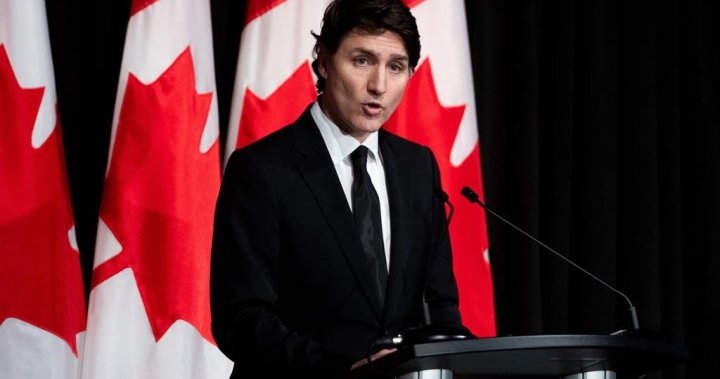In response to the United Nations court’s recent advisory opinion that Israel’s presence in the occupied Palestinian territories is unlawful and that settlements in the West Bank should be reversed, Canadian Prime Minister Justin Trudeau, along with the leaders of Australia and New Zealand, called for Israel to respond substantively to the court’s advice. The International Court of Justice’s non-binding opinion was a sweeping condemnation of Israel’s rule over territories captured 57 years ago, and called for accountability for ongoing violence against Palestinians by extremist settlers and a reversal of illegal settlements in the West Bank. The joint statement emphasized the need to work towards a two-state solution in the region.
Israeli Prime Minister Benjamin Netanyahu quickly denounced the non-binding opinion, insisting that the territories are part of the Jewish people’s historic homeland. Israel argued that the questions posed by the court fail to address Israeli security concerns and that the court’s intervention could undermine the peace process, which has been stagnant for more than a decade. Netanyahu emphasized that Israel has a historical right to the disputed territories and that no false decision will change the legality of Israeli settlements in the region. Israel views the territories as integral parts of its homeland and rejects the notion that it is occupying foreign land.
The International Court of Justice’s advisory opinion stated that Israel has no right to sovereignty in the territories, is violating international laws against acquiring territory by force, and is impeding Palestinians’ right to self-determination. The court called on other nations not to render assistance in maintaining Israel’s presence in the territories. Canada, Australia, and New Zealand did not promise any specific actions in response to the court’s advice, but emphasized the importance of Israel listening to the concerns of the international community. The three countries also renewed calls for an immediate ceasefire in the region, supporting a proposed deal outlined by US President Joe Biden and endorsed by the UN Security Council.
Israel’s ambassador to Canada, Iddo Moed, stated that calling for a two-state solution at this time does not align with the current reality in the region and does not offer practical help to Palestinians. Moed emphasized that the end of hostilities in Gaza is contingent on Hamas releasing hostages, laying down arms, and ceasing the use of civilian shields. Israel sees itself as defending against hostile attacks directed by Iran through proxies in the region. The conflict in Gaza began with a terrorist attack by Hamas and has resulted in thousands of casualties. Canada, Australia, and New Zealand expressed concern about the potential escalation of conflict and attacks on Israel by Iran and other hostile parties in the region.
In conclusion, the joint statement from Canada, Australia, and New Zealand highlights the ongoing tensions in the Middle East, particularly between Israel and Hamas in Gaza. The call for Israel to respond to the international community’s concerns and work towards a two-state solution reflects the complex and volatile nature of the situation. The role of external actors, such as Iran and Hezbollah, in fueling conflict adds to the challenges faced in achieving lasting peace and stability in the region. The continued efforts of global leaders and organizations to address the underlying issues and promote dialogue and diplomacy are crucial in working towards a resolution to the long-standing conflict between Israel and the Palestinians.


